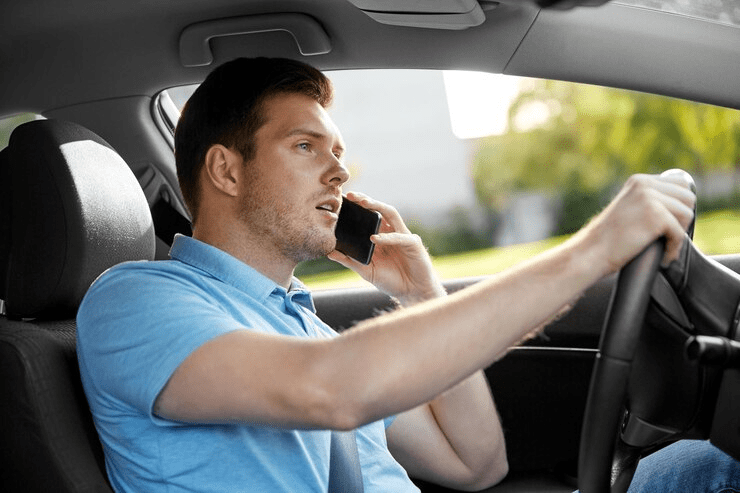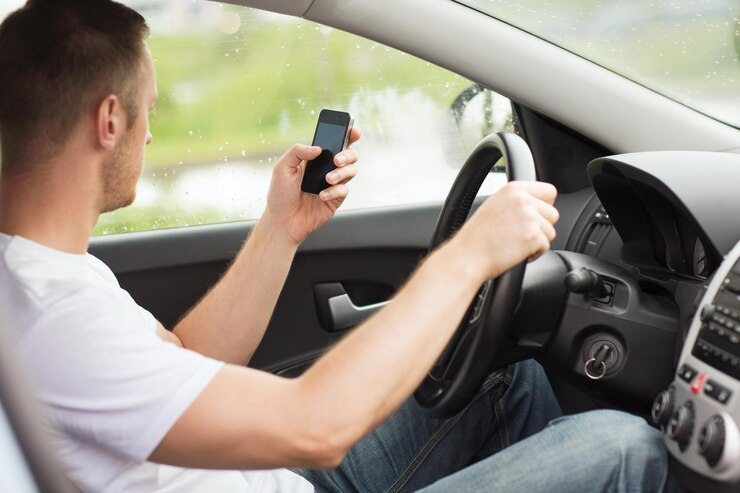Distracted driving has become a significant concern on roads across the globe. The rise of technology, coupled with the fast pace of modern life, means more drivers are engaging in distractions that take their focus off the road. Unfortunately, this leads to alarming consequences, often involving serious injuries or fatalities. Understanding the risks of distracted driving is essential for making informed decisions and ensuring safety behind the wheel.
If you’re seeking legal guidance following an accident caused by distracted driving, firms like Thomas Law Offices offer insights into your options for pursuing justice, though prevention remains the best cure for such incidents.
What is Distracted Driving?
Distracted driving refers to any activity that diverts attention away from the primary task of driving. This could involve anything from using a mobile phone to adjusting the car’s navigation system, eating, or even conversing with passengers. These seemingly harmless distractions can drastically reduce a driver’s reaction time, increasing the likelihood of accidents.
Types of Distractions
There are three main categories of distractions that drivers experience:
- Visual Distractions: These involve taking your eyes off the road. Common examples include reading a text message, looking at a map, or glancing at something outside the vehicle.
- Manual Distractions: These occur when you take your hands off the wheel. Examples include eating, drinking, or adjusting the radio.
- Cognitive Distractions: These involve taking your mind off driving. This can happen if you’re daydreaming, deep in thought, or engaged in a conversation with a passenger.
How Distracted Driving Impacts Safety
Distracted driving reduces a driver’s ability to respond to unexpected changes on the road, such as sudden braking, pedestrians crossing, or obstacles. Research shows that distracted drivers are less aware of their surroundings and take longer to react. Even a second of lost focus can be enough to cause a crash.
The National Highway Traffic Safety Administration (NHTSA) reports that distracted driving contributes to thousands of fatalities each year. It’s not just drivers who are at risk; passengers, pedestrians, and cyclists also face heightened danger when someone operates a vehicle while distracted.
Texting While Driving: The Most Dangerous Distraction
While there are numerous distractions drivers face, texting while driving stands out as one of the most perilous. Texting involves all three types of distractions—visual, manual, and cognitive—which significantly increases the likelihood of an accident.
A study by the Virginia Tech Transportation Institute found that drivers who text are 23 times more likely to be involved in a crash. Given these startling statistics, it’s easy to see why many regions have enacted strict laws banning texting while driving.
The Role of Smartphones in Distracted Driving
Smartphones have revolutionized communication, but they’ve also introduced a major hazard to drivers. Whether it’s answering a call, replying to a message, or checking social media, the temptation to use a phone while driving is strong. Unfortunately, the consequences can be devastating.
Several studies have shown that using a phone while driving can impair reaction time as much as driving under the influence of alcohol. This comparison highlights just how dangerous it is to glance at your phone, even for a moment, when behind the wheel.
The Ripple Effect: How Distracted Driving Affects Others
Distracted driving doesn’t just affect the person behind the wheel—it has far-reaching implications for everyone on the road. A driver distracted for even a brief moment can cause accidents that impact other vehicles, pedestrians, and cyclists. These crashes often lead to serious injuries, long-term disabilities, or even fatalities.
For example, a driver who looks down at their phone while approaching a pedestrian crossing could fail to notice someone stepping into the road. Similarly, a distracted driver may not see a vehicle slowing down ahead, leading to a rear-end collision. These scenarios demonstrate the ripple effect that distracted driving has on the broader community.
The Legal and Financial Consequences of Distracted Driving
In addition to the physical and emotional toll, distracted driving carries significant legal and financial consequences. Depending on the severity of the accident, distracted drivers can face hefty fines, license suspension, and even jail time. Moreover, insurance rates often skyrocket after an at-fault accident, further adding to the financial burden.
When a distracted driving accident causes injury or death, victims or their families may pursue legal action against the driver. In such cases, law firms like Thomas Law Offices can provide guidance on seeking compensation for damages, including medical expenses, lost wages, and pain and suffering. However, it’s always better to avoid these situations altogether by staying focused on the road.
Legal Repercussions by Region
Distracted driving laws vary by location, but the trend toward stricter regulations is clear. Many regions have adopted “hands-free” laws, which prohibit the use of handheld devices while driving. Violating these laws can result in fines, points on your driving record, or more severe penalties if an accident occurs.
In some states or countries, distracted driving is considered as serious as driving under the influence. Repeat offenders may face escalating consequences, including the potential for long-term license suspension.
How to Prevent Distracted Driving
Preventing distracted driving starts with awareness and personal responsibility. Here are some practical tips to help reduce distractions and keep your focus on the road:
- Put Your Phone Away: Keep your phone out of reach while driving, or use a hands-free device if you must make a call. If necessary, enable “Do Not Disturb” mode to silence notifications.
- Plan Ahead: Set your GPS, adjust the radio, and finish any necessary tasks before you start driving. Having everything in place beforehand minimizes the need for adjustments on the road.
- Avoid Eating or Drinking: Save meals and snacks for when you’re not behind the wheel. Eating can take your hands off the wheel and your focus away from driving.
- Pull Over for Important Tasks: If something urgent comes up—whether it’s a phone call or attending to a child in the back seat—find a safe place to pull over before addressing it.
- Stay Focused on the Road: Remind yourself that driving is your primary responsibility while behind the wheel. Avoid daydreaming or letting your mind wander.
Encouraging Others to Drive Responsibly
You can also play a role in preventing distracted driving by encouraging others to drive responsibly. If you’re a passenger, offer to manage the driver’s phone or navigation system. Remind them of the risks if they seem distracted, and lead by example by keeping your focus on the road when it’s your turn to drive.
The Role of Technology in Reducing Distracted Driving
While technology is often blamed for causing distractions, it can also be part of the solution. New advances in automotive safety technology, such as lane-keeping assist, automatic emergency braking, and adaptive cruise control, help reduce the risk of accidents caused by distractions.
There are also apps designed to prevent distracted driving by limiting access to certain phone functions while driving. These tools can block incoming calls and texts or send automatic replies, letting others know you’re driving and can’t respond immediately.
Final Thoughts
Distracted driving is a major contributor to road accidents, and its dangers cannot be overstated. Whether it’s texting, eating, or simply daydreaming, any distraction can have deadly consequences. By staying focused and encouraging others to do the same, we can all contribute to making the roads safer.
Remember, no text, call, or distraction is worth risking your life—or someone else’s. Stay safe, stay focused, and keep your attention where it belongs—on the road.

